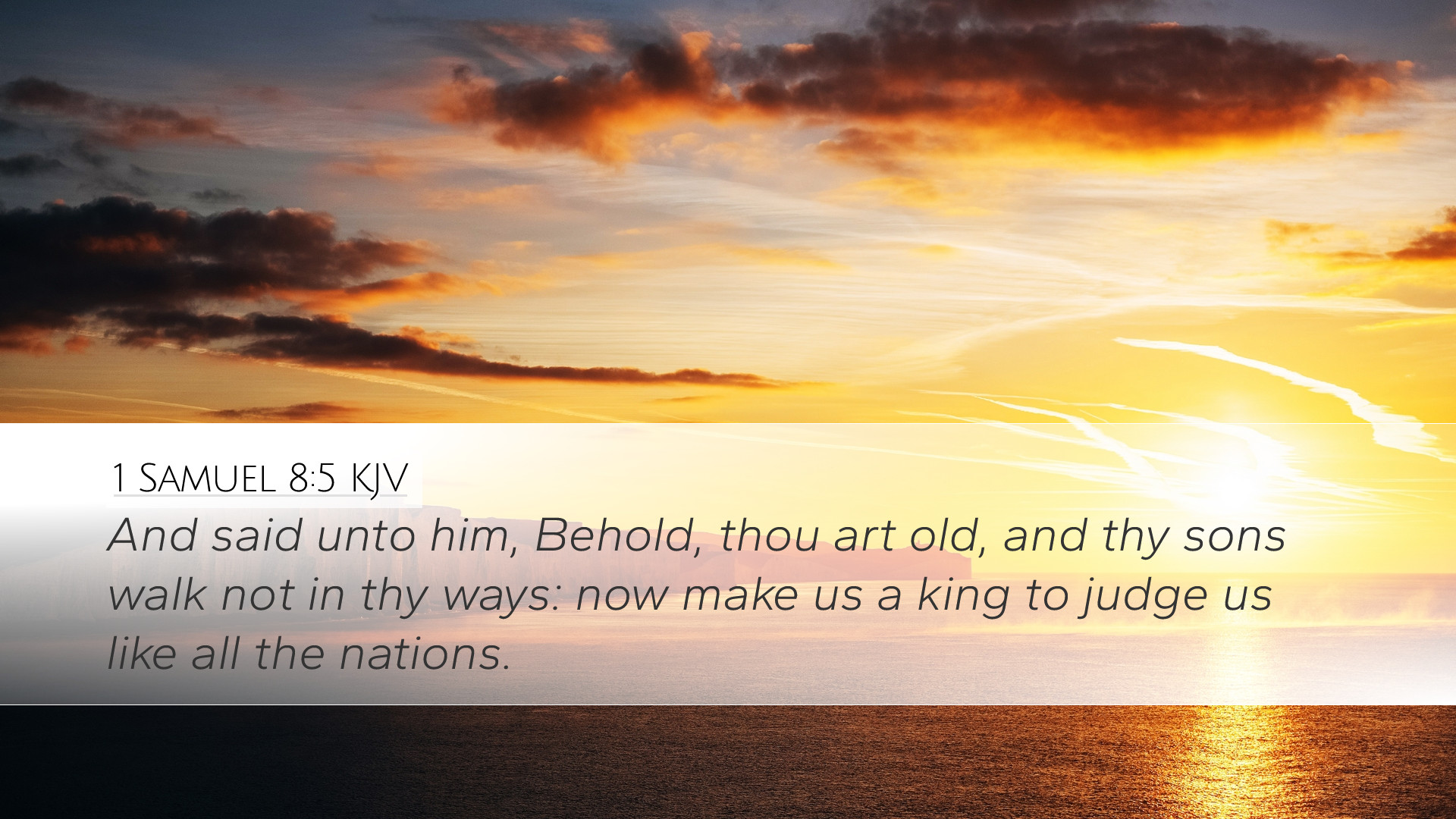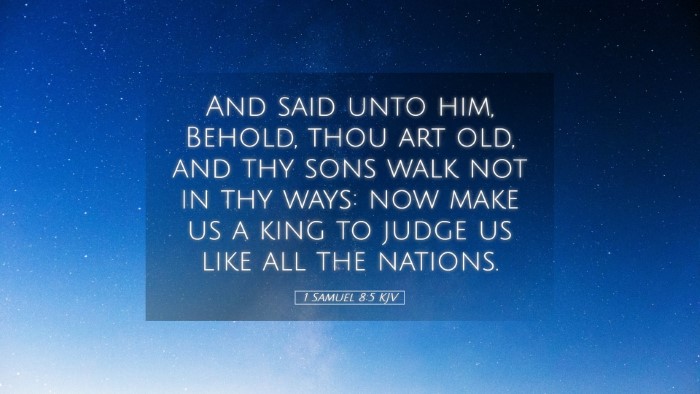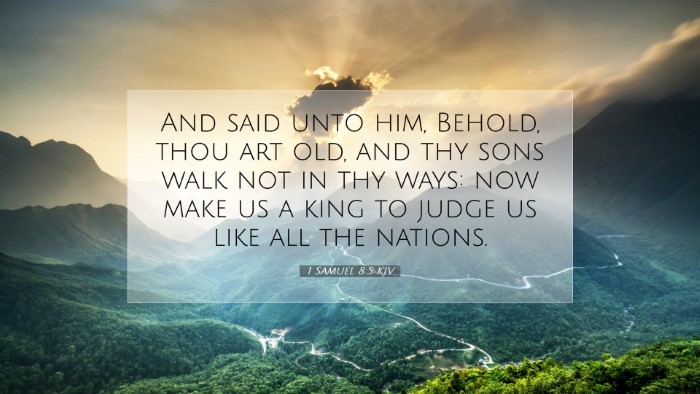Commentary on 1 Samuel 8:5
Verse: "And said unto him, Behold, thou art old, and thy sons walk not in thy ways: now make us a king to judge us like all the nations."
Introduction
The request for a king in 1 Samuel 8:5 marks a significant turning point in Israel's history. This demand prompts a series of events that will lead to the establishment of monarchy in Israel, shifting the nation from a theocratic rule under judges to a centralized monarchy. In this commentary, we will explore the theological implications and historical context of this verse, drawing insights from various public domain commentaries.
Historical Context
Prior to this request, Israel was governed by judges, chosen by God to lead, deliver, and guide the people. The judges were instrumental during times of crisis, but their leadership was often temporary and did not provide a stable, continuous authority. Matthew Henry notes that the people’s dissatisfaction with Samuel’s leadership stemmed partly from his old age and the corruption exhibited by his sons.
Issues with Samuel's Leadership
-
Samuel's Age:
The elders approached Samuel with the acknowledgment of his old age. This recognition signifies a transition, emphasizing the need for a youthful leader who could better represent their interests.
-
Corruption of Samuel’s Sons:
Samuel’s sons, Joel and Abijah, did not conduct themselves in a manner befitting their father's legacy. They were described as “taking bribes and perverting justice” (1 Samuel 8:3). Albert Barnes highlights that the actions of the sons diminished the trust in the existing governance structure.
The Demand for a King
The request for a king reflects a deeper shift in the Israelite mindset. The people expressed a desire to be like the other nations, which indicates both a longing for conformity and a rejection of God’s unique governance. Adam Clarke points out that while the demand seemed justified from a human perspective, it signified a lack of faith in God’s providence and direction.
Theological Implications
This transition from judges to a monarchy is not merely political; it carries profound theological implications. The Israelites essentially traded divine leadership for human authority, demonstrating a fundamental misunderstanding of their covenant relationship with God. In disregarding God's guidance, they sought stability in a tangible monarchy rather than in the faithful leadership provided by God through His chosen judges.
Comparison with Other Nations
The Israelites’ demand to be “like all the nations” reveals a desire for security and identity that aligns with those surrounding them. This was contrary to God’s intention for Israel to be a holy nation, a distinct people set apart for His purposes (Exodus 19:6). Henry notes that their desire for a king was born out of fear and the influences of surrounding nations rather than a reliance on God's sovereignty.
Consequences of the Demand
The request signifies the beginning of a long struggle with monarchy in Israel, leading eventually to disappointment in human leaders. God’s response to Samuel was to comply with the people's wishes, illustrating both His mercy and the consequences of rebellion against divine authority.
Judgment and Warning
God instructed Samuel to warn the Israelites about the implications of their request for a king. Samuel delineated the burdens that would come with monarchy, including taxes and conscription (1 Samuel 8:10-18). This foreshadows the difficulties Israel would face under human leadership, emphasizing a key theme in the biblical narrative: reliance on God versus the perils of human rulers.
Conclusion
1 Samuel 8:5 serves as a pivotal verse illustrating the struggles of faith, leadership, and identity within the people of Israel. The elders' request for a king symbolizes a profound shift in their theology and practice, reflecting a tendency to seek solutions aligned with worldly standards rather than divine wisdom. The commentary from Matthew Henry, Albert Barnes, and Adam Clarke provides layers of understanding, urging modern readers to reflect on their own reliance on God versus human institutions.
Reflections for Today's Believers
As pastors, students, and theologians engage with this passage, it serves as an essential reminder of the importance of divine guidance in leadership. The challenge remains for contemporary believers to discern between the pressures to conform to societal norms and to uphold a distinct identity rooted in the truth of God’s Word.


